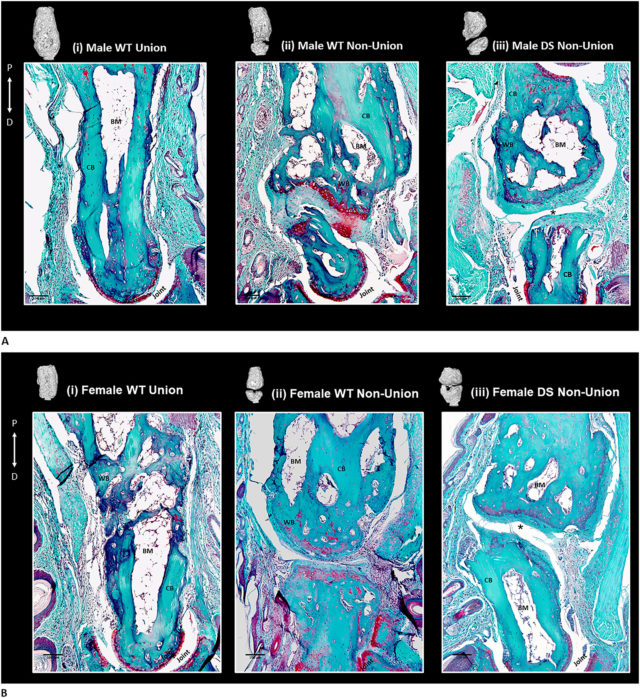
By Kirby Sherman | Ph.D. candidate in Biomedical Sciences
Department of Veterinary Physiology & Pharmacology
Down syndrome (DS), the most common birth defect in the United States, alters human development and leads to a variety of clinical issues, including low bone mass and strength. Because people with DS are living longer, more active lives, their risk of bone fracture has increased.
However, there is a significant gap in knowledge regarding DS and fracture healing, and it remains unknown if people with DS are able to heal fractures. This observation of the lack of research surrounding DS and bone health was first made in the laboratory of Dr. Larry Suva, in the School of Veterinary Medicine & Biomedical Sciences Department of Veterinary Physiology & Pharmacology. Indeed, the risk of fractures is a major health concern for the DS community and can severely impact their quality of life.
Due to the increased risk resulting from decreased bone mineral density observed in DS people, our work sought to understand how DS impacts the ability to heal a fracture. Ultimately, we determined that when individuals with DS fracture a bone, that bone is unlikely to heal. We also discovered the reason why these bones fail to heal (called non-union), namely inflammation and a defect in bone repair.
Importantly, fractures that fail to heal can be fatal, even in young people with no previous health concerns. With this new awareness of the problem, we hope there will be more widespread adoption of measures to increase bone strength, more careful monitoring when fractures do occur, and that physicians and others will consider the bone health of people with DS a priority for their care.
